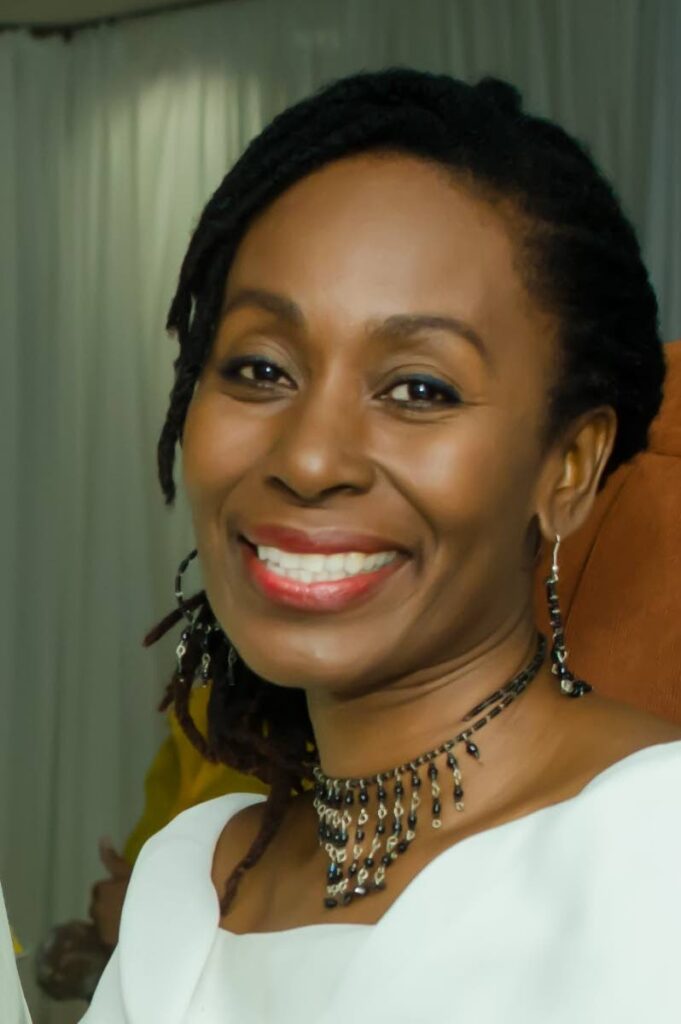Artists want more, now

Culture Matters
DARA E HEALY
THE JUBILATION as people celebrated the life of Blaxx was tinged with déjà vu. A sense that, this man who walked with ease amongst the people, who gave us so much music and inspired a spontaneous parade in the capital city, somehow, something was missing. People speak of his humility, commitment to family and love of soca music. They remember him as a mentor, a teacher and father figure. As someone who channelled his fame as a force of empowerment. But as he transitioned, we were reminded again that more needs to be done for artists, while they are alive.
But what exactly do we mean by more? And how do we judge who receives what, when and for what purpose? Should artists be rewarded based on their fame? Or based on the number of times they won the Calypso Monarch or Chutney Soca competition? Or whether their music appeared in international films or their books are on the school curriculum? Does a Nobel Prize outrank a Commonwealth award or the Chaconia Gold medal?
Blaxx credited encouragement from Roy Cape with helping him to find purpose. Mentorship is critical to helping artists evolve from merely having potential to becoming a force to be reckoned with in the creative space.
Our organisation was privileged to be part of a government programme called Mentoring by the Masters which paired accomplished artists with citizens who wanted to learn from experienced practitioners. Areas of expertise ranged from storytelling and fashion design to classical Indian dance, the literary arts and traditional Carnival.
It was a rigorous programme, lasting for several weeks. Emphasis was placed on areas such as the business of the arts, event planning and the practical staging of a creative piece of work.
Programmes of this nature should be implemented across our school system, not only in times of crisis, but as a key component of how we teach the creative arts in this country, to develop a deeper respect for the arts and culture.
The creative sector is also in dire need of substantial business and financial investment, particularly aimed at allocating available land to creative entities. Our understanding of land allocation must move beyond religious groups.
At the height of the pandemic, the arts were key to maintaining positive mental health in communities around the world. The creative sector is only now recovering. Thus, beyond giving grants, banking and financial entities such as credit unions and insurance companies need to revise their policies to support cultural organisations. There should be a partnership between financial and creative sectors, with serious attention being paid to supporting artists in areas including financial growth, health insurance and retirement funds.
There must also be a reckoning of the national bodies responsible for some aspects of our culture. As a citizen, I remain confused and disappointed by the way the entities responsible for masquerade, pan and calypso are managed. Sixty years after independence, there is an urgent need to re-examine the purpose and relevance of these organisations.
Further, where are the national bodies to represent soca, chutney, or community festivals like Ramleela? Who speaks for the stick-fighters or traditional masqueraders? Our Carnival, emerging from the belly of the barrack yards in Port of Spain, and back alleys of Arouca, Princes Town and San Fernando, continues to be a battleground for the foundation practitioners of the festival.
Meanwhile, the elder artists around me continue to age, become ill and, eventually, go their way. I have lost so many elders, but the older generation of cultural activists continue to lose their friends and comrades-in-arts. Many of them battle loneliness, depression and face near destitution.
How is it that aging artists have no space where they may go to write, paint and create in their final years? Why did Tony Williams have to wait hours outside the hospital to be tended to? Why did that private medical facility ask Uncle Andre for money before admitting him? The pain of that memory is still there, almost as strong as the pain of Blaxx’s family asking simply for more to be done.
On stage, everything else disappears. It is what we live for, when the lights go up and the audience understands our message. Dance to our music, immerse yourself in our theatre, marvel at our artistry. We give lovingly of our talents and ask for little but your applause. But the truth is, artists need more and we need it now. Rest in peace, humble, talented Blaxx. Rest.
Dara E Healy is a performance artist and founder of the Indigenous Creative Arts Network – ICAN


Comments
"Artists want more, now"